When facing the challenges of substance abuse, finding effective treatment is a critical step toward recovery. However, the cost of treatment can be a significant concern for many individuals and families. Understanding “How Much Does Substance Abuse Treatment Cost” is essential to making informed decisions about care. The expense of treatment varies widely depending on the type of program, duration of care, and level of support required. By exploring the factors that influence these costs, we can better navigate the financial aspects of seeking help, ensuring that recovery remains an attainable goal for everyone in need.
The Real Cost of Substance Abuse Treatment
First off, let’s get one thing straight: investing in substance abuse treatment is a commitment to a healthier, happier future. It’s not just about the dollars and cents, but about regaining control of your life. However, it’s understandable to be concerned about the financial aspect. So, how much does substance abuse treatment cost?
Factors Influencing the Cost
Before we throw out some numbers, it’s important to understand that the cost can vary widely. Several factors come into play, such as:
- Type of Treatment Program: Different programs have different costs. Inpatient or residential treatment tends to be more expensive than outpatient programs due to the intensive level of care and accommodation provided.
- Duration of Treatment: The length of time you spend in treatment can also affect the cost. Some people might need just a month, while others might benefit from several months of treatment.
- Location: Where you receive treatment matters. Facilities in big cities or in luxurious settings might charge more than those in smaller towns or less glamorous locations.
- Level of Care: The severity of the addiction and any co-occurring mental health issues might require more intensive and expensive care.
- Amenities and Services: Think of it like choosing a hotel. Some treatment centers offer basic services, while others might have additional amenities like private rooms, gourmet meals, or recreational activities.
Breaking Down the Numbers
Now, let’s talk numbers. Keep in mind these are general estimates, and actual costs can vary:
- Detox Programs: Detox is often the first step in treating substance abuse. It can cost between $300 to $800 per day. The total cost depends on how long the detox process takes, typically ranging from 3 to 10 days.
- Inpatient Treatment: This is the most comprehensive type of treatment. Costs can range from $6,000 to $20,000 for a 30-day program. High-end facilities can charge upwards of $20,000 to $60,000 per month.
- Outpatient Treatment: This is a more flexible option and usually less expensive. It can cost about $5,000 for a three-month program. Intensive outpatient programs, which are more frequent and rigorous, might cost between $3,000 and $10,000 for a 30-day program.
- Partial Hospitalization Programs (PHP): PHPs provide a high level of care but allow patients to go home at night. These can cost between $350 to $450 per day.
- Medication-Assisted Treatment (MAT): For those needing medication to help with withdrawal and recovery, costs can vary widely. Medications like methadone, buprenorphine, or naltrexone can cost from $50 to $500 per month, depending on the medication and dosage.
Hidden Costs and Additional Expenses
Don’t forget to consider other potential costs that might sneak up on you:
- Therapy and Counseling: While some programs include therapy as part of the package, others might charge separately. Individual therapy sessions can range from $50 to $250 per hour.
- Aftercare and Follow-up: After the initial treatment, ongoing support is crucial. Aftercare programs, support groups, and follow-up therapy can add to the overall cost.
- Travel Expenses: If you’re seeking treatment far from home, you’ll need to factor in the cost of travel.
Insurance and Payment Options
Good news! Many insurance plans cover some, if not all, of the costs associated with substance abuse treatment. This can significantly reduce your out-of-pocket expenses. The Affordable Care Act (ACA) requires that insurance plans cover substance abuse treatment as an essential health benefit.
Here’s what you should do:
- Check Your Insurance: Contact your insurance provider to find out what’s covered under your plan. Ask about in-network and out-of-network providers, as this can affect your costs.
- Ask About Sliding Scale Fees: Some treatment centers offer sliding scale fees based on your income, making treatment more affordable.
- Look for State-Funded Programs: Many states offer programs that provide free or low-cost treatment for those who qualify.
- Explore Payment Plans: Some facilities offer financing options or payment plans to help spread out the cost.
Is It Worth It?
Absolutely, yes! While the costs might seem high, consider the alternative. Substance abuse can lead to a host of problems, including health issues, legal troubles, and strained relationships. Investing in treatment can save you money in the long run by avoiding these potential costs. Moreover, the benefits of getting clean and sober are priceless. Improved health, better relationships, and the chance to rebuild your life are worth every penny.
If you’re interested in learning more about “How to Rewire Brain from Addiction,” Visit our blog page now!
Final Thoughts
Substance abuse treatment can be a significant financial commitment, but it’s an investment in a brighter, healthier future. Understanding the costs and exploring your options can help you make an informed decision. Remember, there are resources and support systems out there to help make treatment accessible. If you or a loved one is struggling with substance abuse, don’t let the cost deter you from seeking help. Reach out, ask questions, and take the first step toward recovery. Take the first step towards a brighter, healthier future with Elysian Psychological Services. Our compassionate and expert team is here to support you on your journey to recovery from substance abuse. Contact us today to start your personalized treatment plan and reclaim your life.


